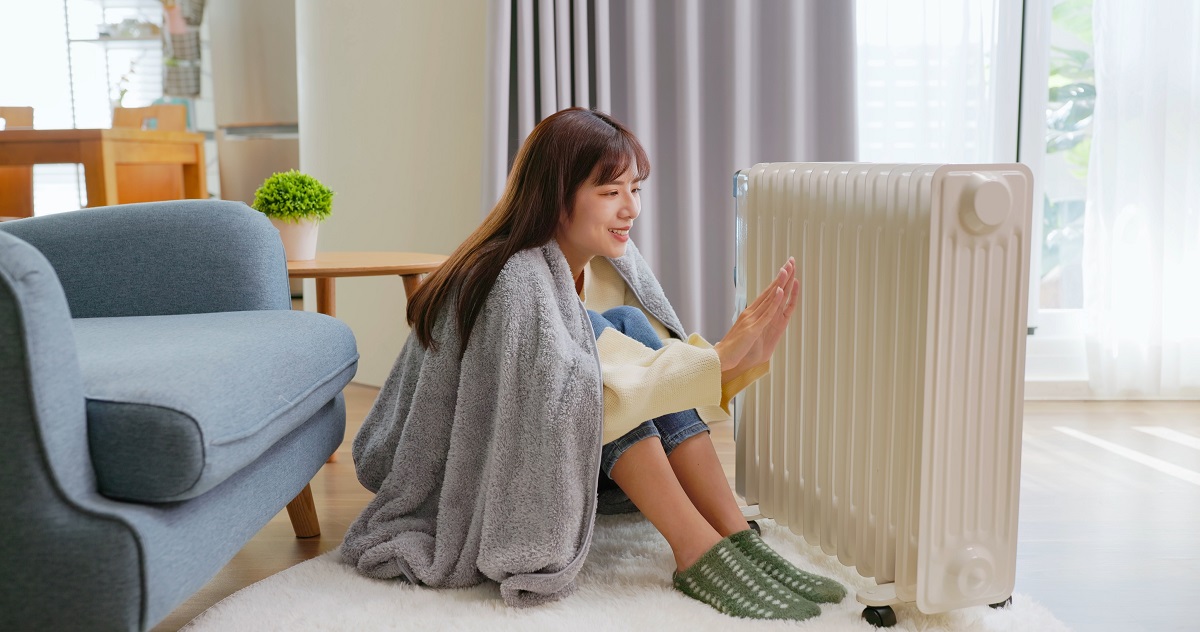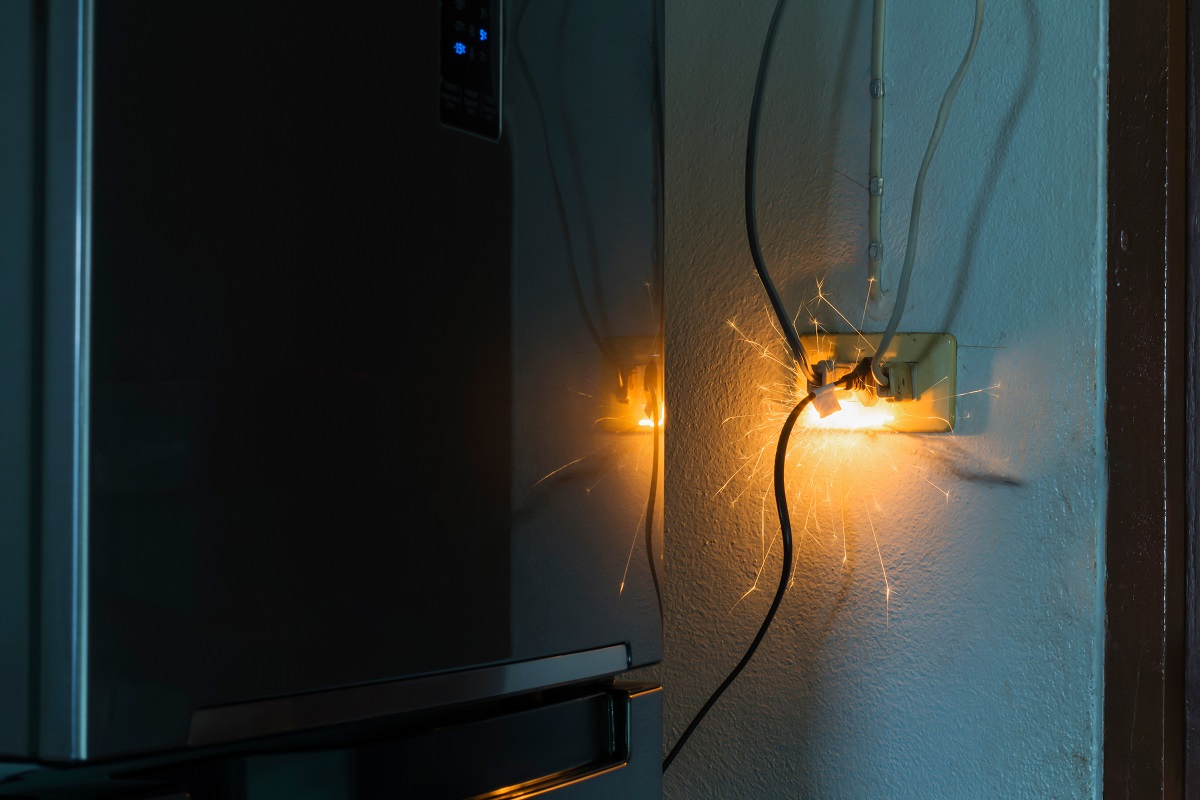Did you know one of the biggest threats to your home is fire?
With U.S. fire departments responding to more than 346,000 home structure fires annually, the best thing you can do to prevent a home fire is learn the common causes and how to avoid them.
#1 – Cooking

According to the National Fire Protection Association, cooking is the number one cause of home fires and home fire injuries, and the second leading cause of home fire deaths. In fact, between 2015 and 2019, cooking caused an average of 169,400 home fires annually.
While we could dedicate a whole blog to cooking safety tips, here are a few quick ones to help you prevent an uncomfortably hot situation in your kitchen:
- Stay in the kitchen while you’re cooking.
- Stay alert while cooking and don’t be distracted in any way.
- Keep children and pets at least three feet away from your cooking area.
- Double check your timer to make sure you set it for the right time. (Did you mean to set it for 30 seconds, 3 minutes, or 30 minutes?)
Also, if you’re too tired or simply don’t have the time to focus on cooking, play it safe. When in doubt, get takeout.
#2 – Smoking
Though only 12.5% of adults smoke in the US, smoking has been for decades and continues to be one of the leading causes of home fire deaths.
If you or a household member are a smoker , consider the following tips to prevent a home fire:
- Quit smoking to reduce the risk of fire and improve your health.
- Smoke outside and away from the home. (An exterior balcony and an open porch are where the majority of smoking home fires begin.)
- Keep all smoking materials – cigarettes, lighters, matches, etc. – locked in a cabinet and away from children.
- Use a deep, sturdy ashtray and keep it away from any flammable items.
- Do not throw cigarettes into vegetation, including but not limited to potted plants, grass, leaves, and mulch.
- Make sure butts and ashes are out before discarding. (Douse in water or sand.)
Medical oxygen can help materials to ignite more easily and help fires burn faster. Never smoke when medical oxygen is in use.
#3 – Heating equipment

Space heaters, chimneys or flues, central heating, and water heaters were responsible for nearly one in six home structure fires. Nearly half of all home heating fires occurred between December and February, and space heaters were involved in 88% of home heating fire deaths.
Help to prevent a space heater fire by following these easy steps:
- Make sure your space heater has the seal of a qualified testing laboratory.
- Buy a space heater that has a thermostat, overheat protection, and an auto shut-off for when/if it tips over.
- Keep your heater on a solid, flat surface and at least three feet away from anything flammable, including you and your family members.
- Never leave a space heater unattended. (If you have to leave the room, turn it off and unplug it.)
- Never fall asleep while a space heater is on.
- Plug only one device into one outlet (so your heater is the only device in that outlet).
- Never plug a space heater into an extension cord.
#4 – Electrical fires

More than 32,000 fires a year start due to electrical distribution or lighting equipment, and this type of fire is the leading cause of home fire property damage. Electrical home fires can occur in any equipment or devices that use electricity, including wiring in the home’s walls, fans, air conditioners, dryers, etc. – but most electrical home fires originate in the bedroom.
With electrical fires, it’s important to always be on the lookout for common hazards, such as:
- Discolored or charred receptacles.
- Switches that are hot to the touch.
- Frayed electrical cords to appliances, lamps, etc.
- Flickering lights.
These are warning signs that can tip you off to serious hazards, including a loose connection in the electrical panel, an appliance malfunction, or a problem with the wiring system. If you notice any of these signs, contact a licensed electrician to investigate.
Additional hazard: Hoarding
Hoarding can create additional fire safety and health concerns. It can create unsafe cooking conditions and heating situations when flammable items are too close to ovens, stoves, or heating units. Blocked exits can also prevent an escape in the event of a home fire.
When making your home or a friend’s living space safer, make sure to:
- Keep pathways and exits – doors, windows, and hallways – clear.
- Create an escape plan for the home (with two exits out of every room).
- Practice your plan frequently as escape routes may change.
- Install carbon monoxide and smoke alarms in the home.
Don’t be afraid to talk to community resources, such as the fire department, for additional help.
Get more home safety tips in the FMI HomeAssist app!

Your home is your most valuable asset. Now there’s an app for it. FMI HomeAssist, powered by vipHomeLink is a free app and service, exclusively for FMI policyholders. It allows you to organize, maintain and improve your home all from one easy-to-use, intuitive app.
From personalized maintenance reminders to keeping all your documents and info in one secure location, HomeAssist is your go-to resource for protecting your home and preventing costly claims. It’s one more way FMI goes the extra mile to help keep you and your loved ones safe.
Claim your personalized FMI HomeAssist app now and help protect your home!
FMI content is powered by vipHomeLink